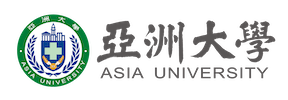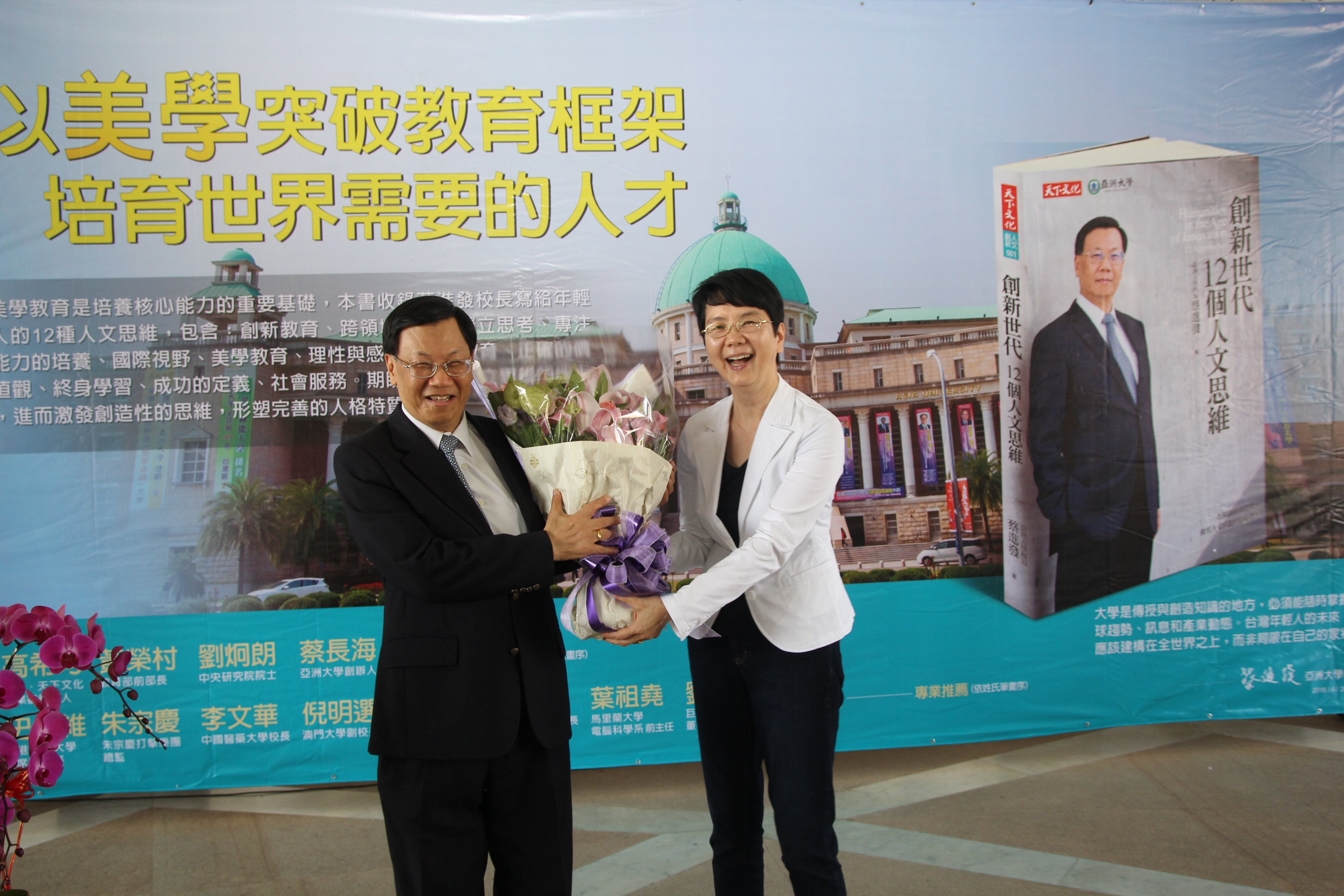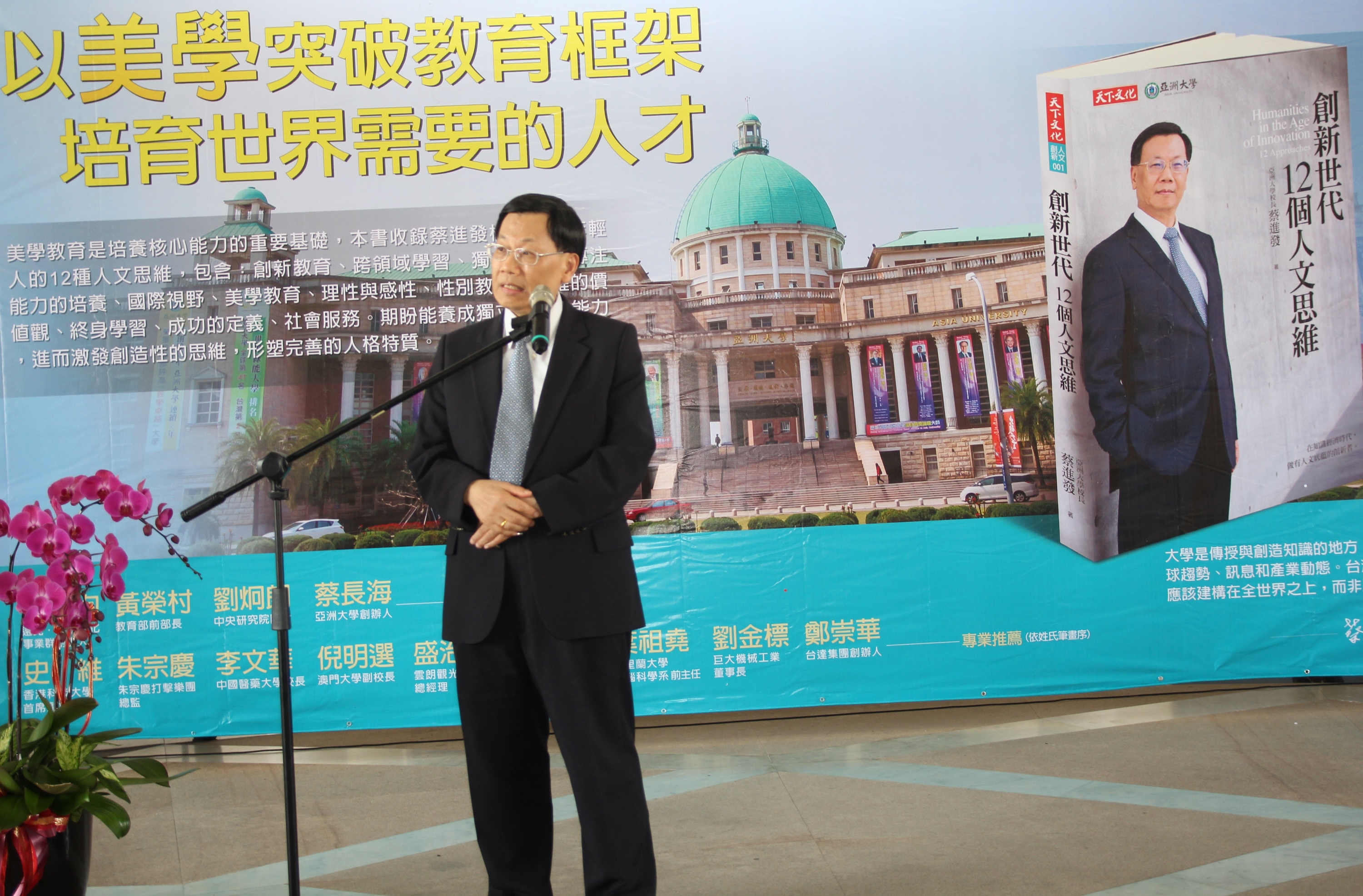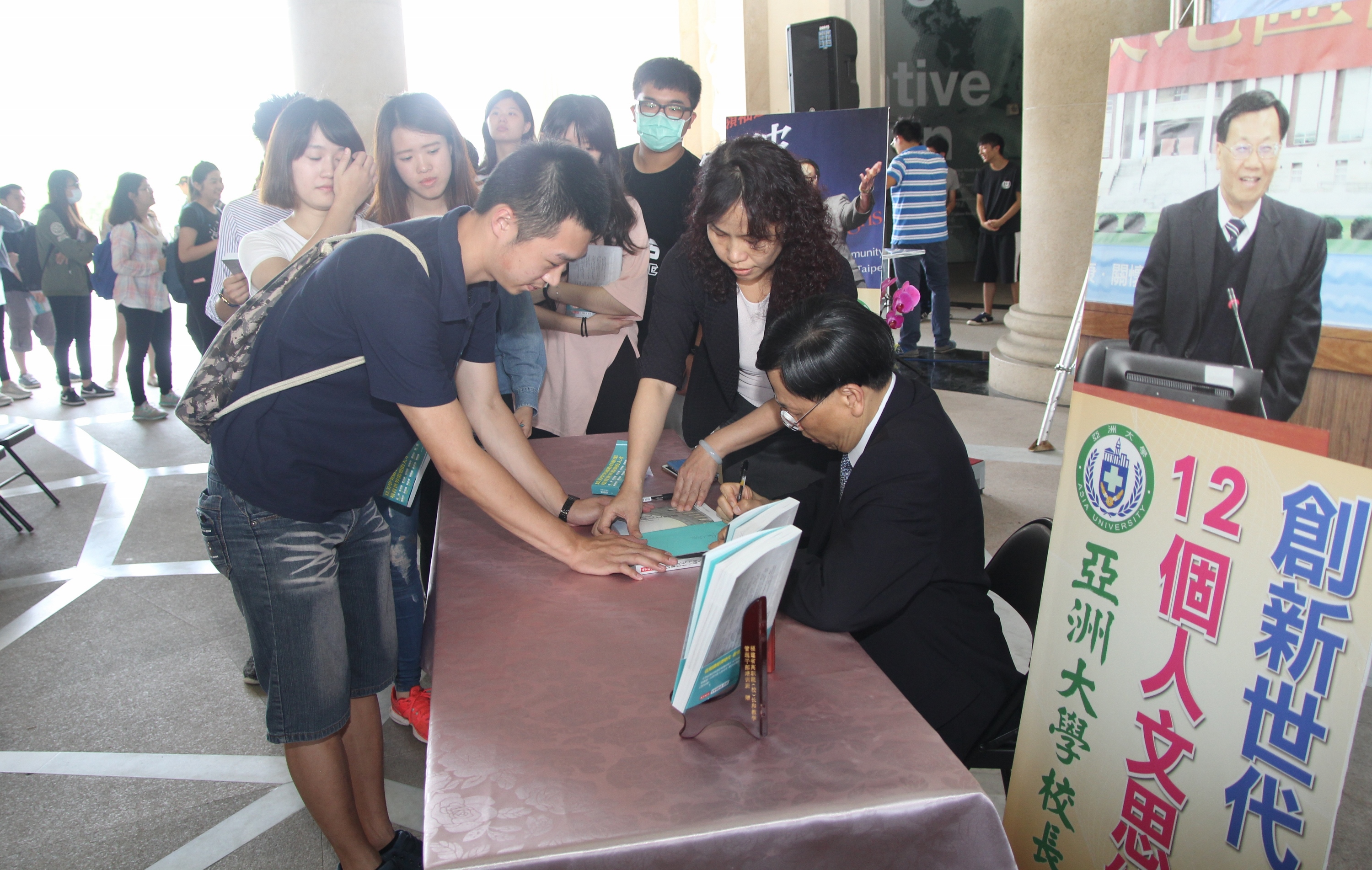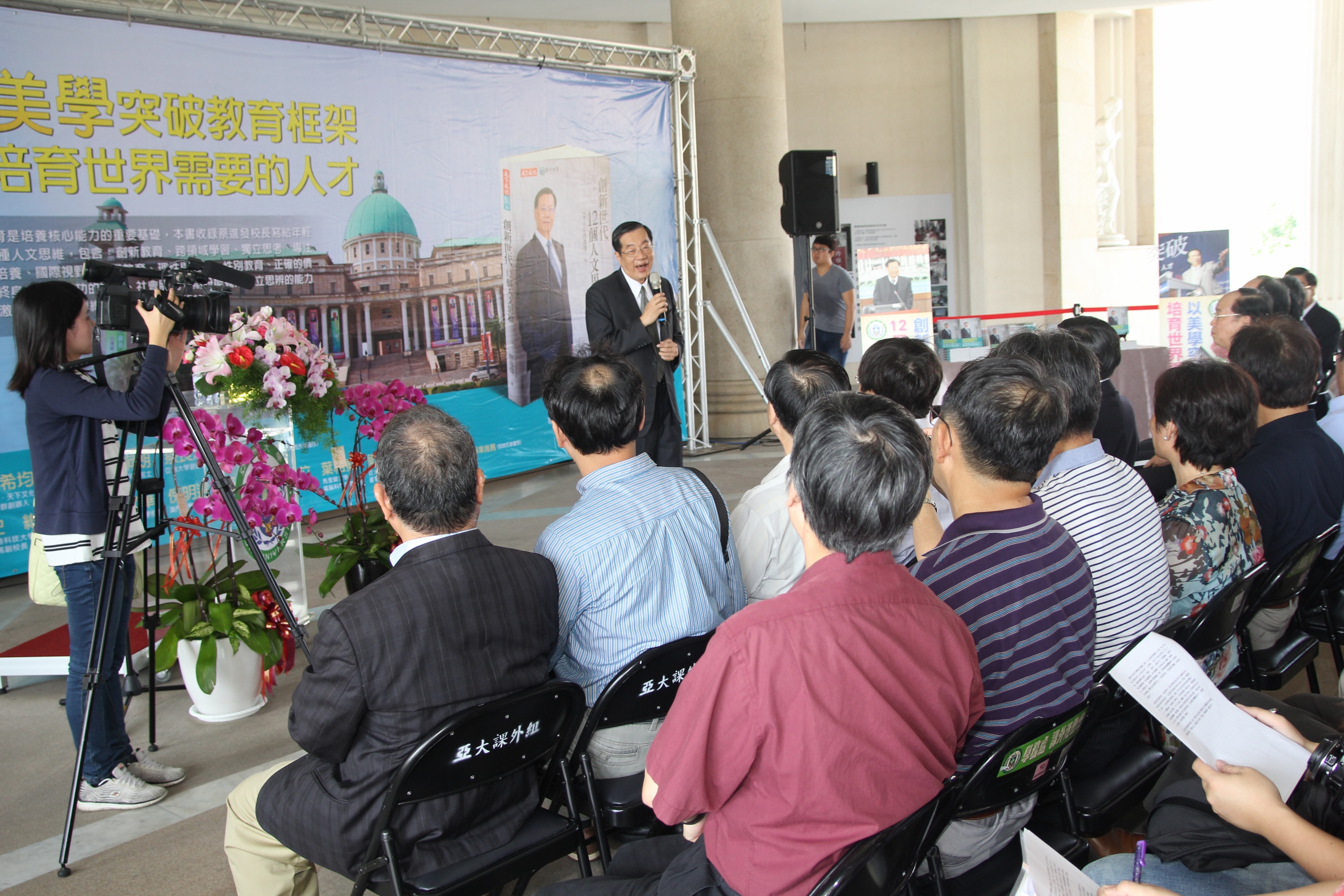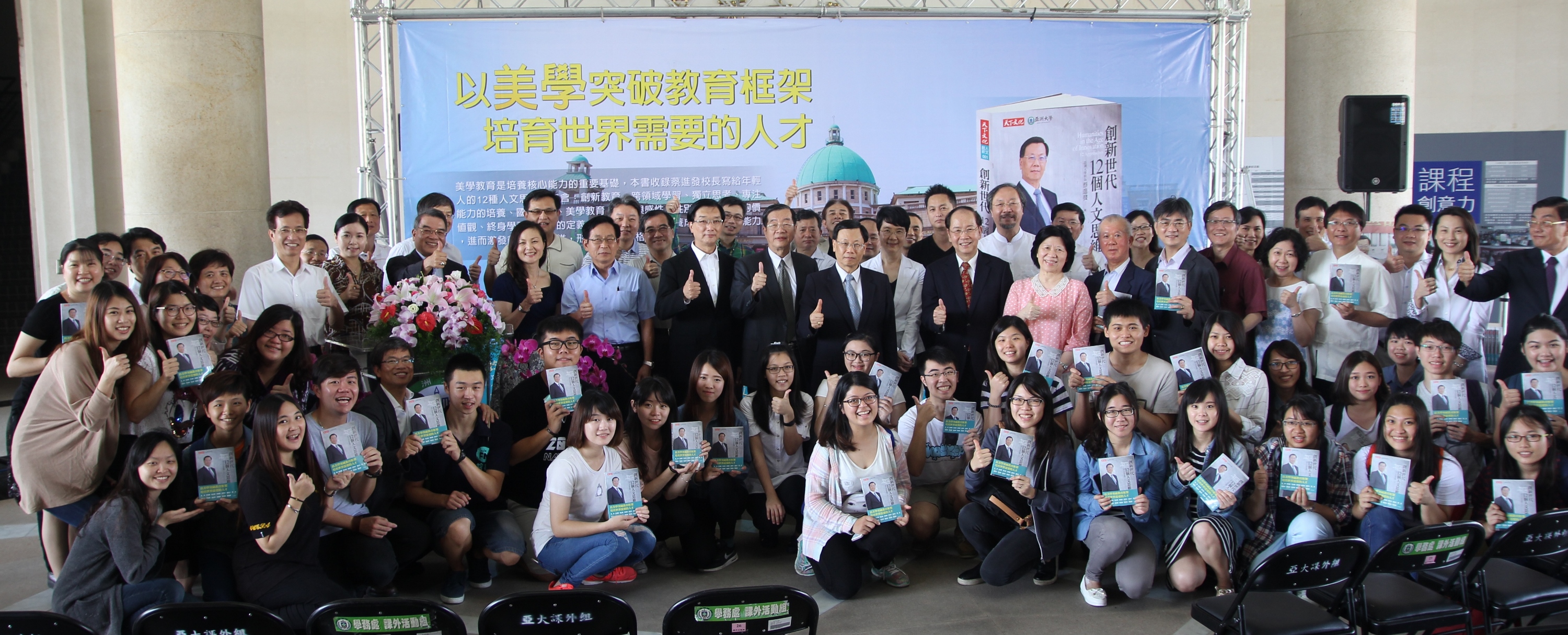A Book Launch Press Takes Place at Asia University for President Tsai's New Book.---
President Tsai presented “12 approaches to cultivate humanities in the age of innovation” in his book to help young students develop creativity capabilities in their careers.
(Asia University, Taiwan)Asia University (AU) President Jing-Pha Tsai is a scholar in Taiwan coming back from the U. S. For many years he lived in America as a distinguished university professor before he came back to Taiwan to hold the post of AU president. AU has been ranked by UK Times High Education (THE) reports in recent three years to be in lists of differently-evaluated top universities in the world, becoming “the youngest university with honors of “four top-100 universities.” President Tsai presented a book entitled “the Humanities in the Age of Innovation: 12 Approaches in the new book lauch press. “AU has become a distinguished university, and expects to cultivate students with virtue, humanity, and artistic capabilities,” said President Tsai, “and it’s a feature of AU to emphasize students’ achievement of learning, allow in-school job training, as well as guarantee after-school employment.” President Tsai mentioned that Taiwan already has 135 university when Asia University was established in 2001 for which he was the first president. He thought at that time that students do not need a common university, but a distinguished university. “We were trying to establish a new school, and so we need more innovative ideas from the beginning;” said President Tsai in the press, “’therefore, we want to establish AU as a visionary, pioneering, and fast-growing school with international competitiveness.” President Tsai also mentioned the university’s motto – Health, Care, Innovation, and Excellency, which, he said, are proposed to express the hope to strengthen humanities, healthcare and social services of the school. “To fulfill these goals, one of the actions taken by AU now is the construction of an affiliated hospital, which is expected to serve as a ”health keeper” for the local society and as a “gateway” to for students to learn knowledge,” emphasized President Tsai, “and AU always puts students first in teaching and research, emphasizes aesthetics education, and promotes the spirits of ‘volunteer university’ and ‘four-creative campus’.”
President Tsai also introduced the experience of AU leading to the successful school running effect so far. He mentioned three noticeable characteristics which AU tries to cultivate students to possess: 1) behaving with morality, 2) working with good quality, and 3) living a life with tastes. He also mentioned four types of creativities AU tries to set up in campus by any means of education are: 1) creativity possessed by the students, 2) innovativeness in teaching conducted by the professors, 3) originality in the development of the campus environment, and 4) entrepreneurship instilled into the university graduates. He as well pointed out a well-known and distinct forum that AU has established since 2010, namely, the "Nobel Laureate Forum," which continuously invites the winners of the Nobel Prize in various areas to visit AU, give speeches, or hold seminars at campus, hoping that AU students and faculty members can learn more from the masters and go further in their academic careers. A guest to the press, Prof. Rong-Cun Huang who is a former Minister of Education, said that AU President Tsai’s book recited 12 approaches to human resource development to make one’s dream come true. In addition, a reviewer of the book, President of City University of Hong Kong Dr. Wei Guo, said, “Dr. Tsai is not only a professor of Computer Science, but also a scholar who makes the most of human solicitude; and this book has 12 keypoints of humaninity thinking corresponding to the 12 approaches proposed by President Tsai, which are worth for everybody to read.” Finally, a vice president of AU and the dean of academic affairs, Professor Ta-Cheng Chen said, “this book has been selected as one of AU’s teaching materials for general education and creative leadership; AU hopes the students can conduct their dreams by the ideas presented in this book the Humanities in the Age of Innovation: 12 Approaches.”
|
